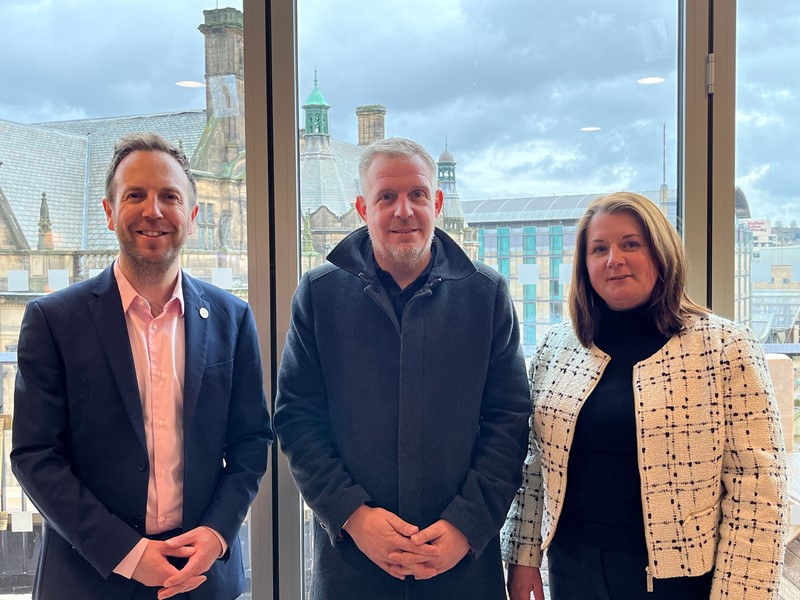Sheffield City Centre’s flagship Radisson Blu hotel, which boasts 154 rooms and a rooftop bar and restaurant, is due to open this Summer with booking available next week.
Council set to balance budget despite a decade of cuts

Sheffield City Council has acknowledged that it will overspend in the current financial year 2019/20, but the level of overspend is only around one per cent of net revenue expenditure and the authority has plans to reduce this.
As set out in its medium term financial analysis published this week, Sheffield City Council has identified a further funding gap of £23.7million for 2020/21, taking the cumulative total of savings and financial pressures to £480 million over the last 10 years.
The plans - which are available online - outline how the authority will reduce this funding gap and get to grips with the next four years of financial challenges.
Councillor Terry Fox, Cabinet Member for Finance and Resources at Sheffield City Council, said: “We’ve survived a whole decade of Government cuts in to hundreds of millions of pounds and to be fair we’ve coped as well as can be expected under such huge pressure. We’ve protected services as much as we possibly can and delivered all essential provisions in the face of such drastic slashes from our resources.
“Managing through these times of austerity and planning for overspend has almost become business as usual for Sheffield, but we cannot go on at this rate. We’ve been left with no other option than to carefully use our reserves, but that cannot continue if we are to have a sustainable future.”
A rising demand in social care services nationally, along with the decreasing funding allocated by government, is seeing councils across the country struggle to cope. Sheffield City Council has continuously lobbied to provide fairer funding particularly for social care. An additional £10million for social care was announced in the 2019 Spending Round, but significant cost and demand pressures completely outstrip this, plus growth in local taxation.
The continuing squeeze in funding means there is a budget gap for 2020/21. However the council has plans in place to address this gap that will be brought forward for political scrutiny during the budget process.
Plans include proposed savings of up to £19.7million, reducing the 2020/21 forecast funding gap from £23.7million to a significantly more manageable £4million. The public will be able to have their say on the plans.
To make sure these plans can be met and that the council’s overspend is controlled up to 2023/24, the Council will continue its current approach to business planning, focusing on savings which support the Council’s strategic priorities of economic growth, prevention and making the most effective use of its resources.
Over the next four years plans assume a core council tax increase of two per cent per year, with the actual increase set at Full Council each March. A further two per cent for the Social Care Precept was announced in the recent Spending Review but Sheffield City Council is yet to consider whether this increase will be adopted.
Cllr Fox added: “We’re working hard to get the budget balanced and back on track in the medium term with a focus on joint working with external partners, and through prevention work and the personalisation of services, as well as many other ways.
“The aim of getting things back on track for the coming years is achievable, while still building sustainable and citizen-focused services for the future. We are an ambitious city, we don’t want to stand still in the face of funding pressures. We work extremely hard to transform our services, to turn these unavoidable challenges in to opportunities to work smarter and do things better but this is getting increasingly more difficult.
“We want our budget decisions to meet the needs of our residents, to make sure they are right for the people we serve, but we can’t do that if people don’t tell us. We’ll share consultation details very soon and it’s really important that we hear from as many people as possible.”
The report is published on Sheffield City Council's website.



